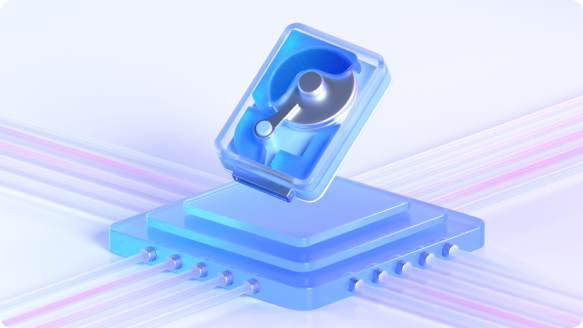File Server Migration Toolkit
I want to switch from the old file server to a new file server for the success of my business, but I don't know how to use file server migration toolkit.
What is a file server?
Every person or business wants to store important data for years. When talking about companies, they create a lot of data each day for which you need to maintain a digital record of data and need to store it as well.
So, the companies used on-premises file servers or cloud storage to keep the data safe for the long term. This is what is known as a file server. From time to time, due to advancements in technology and changes in the operating system, you may need to migrate file server from one source to other.

File server migration is not a difficult task, but if you are new to this, you may find it a bit tricky and may feel it is impossible within a production environment. In this article, we will help you with how to use the file migration toolkit. Also, we will discuss the top three file server migration tool kit.
Take a look!
Part 1: Top 3 File Server Migration Toolkit
There are many file server migration tools, but here we have listed the top three file server migration toolkit. You can use any of the following to migrate file server from 2008 R2 to 2012 R2, windows 2003 to 2012, and more.
Top 1:EaseUSTodoPCTrans
Among many other file server migration tools, EaseUSTodoPCTransis at our top list for its easiness and excellence. This file server transfer tool can meet your needs and can help you with everything in between file selection to account settings.

What's more, this file server migration tool allows you to transfer settings, applications, and even user profiles. The best part is that it supports the most common applications/programs, such as MS Office, Photoshop, Adobe software, Dropbox, etc.
Features:
- Compatible with Windows Server 2003/2008/2012/2016/2019.
- You can move programs from PC to PC
- It supports change in installation location of programs on Windows Server local drive
- It allows you to create images of your files, programs as well as account to automatically transfer them from the source PC to the target system
Top 2:ZinstallWinServ
ZinstallWinServis another file server transfer tool that can migrate applications, settings, profiles, data, and more from one Server to another. This tool is compatible with Windows Server 2019, 2016, 2012, 2008, and 2003.

Features:
- It allows you to migrate programs, settings, profiles, accounts, files, and data from one server to another.
- WinServ can also move files from physical to virtual (P2V, V2V, V2P)
- It is compatible with Windows 10, Windows 8/8.1, Windows 7, XP, and Vista.
Top 3: Storage Migration Service
Third, on our list is Microsoft's Storage Migration Service. It can migrate file servers from Windows Server 2008/R2. This is a type of graphical tool that inventories data on Windows as well as Linux servers and then transfer it to the newer servers.
With it, you are able to create a new server, either physical or virtual.
Features:
- It can transfer files, file shares, and security configuration from the source servers rapidly.
- It takes over the identity of the source servers optionally so that users and apps don't have to change anything to access existing data.
- You can manage one or multiple migrations from the Windows Admin Center user interface.
Part 2: How to Use File Migration Toolkit?
When dealing with the installation of windows server migration tools, both the destination and source server devices need a copy of the tools to act on migration. Here are the steps wise techniques to follow to install the windows server migration tools on the destination and source server.
- First, you will need to download the file server migration toolkit.
- For example, if you plan to use Windows 2012 R2 Server, install the file migration tool on it

- Now start the wizard from your new Windows 2012 R2 Server. For this, Run the wizard and Tap on "New."

- After this, click on "Next."
- Now, you can assign a name for the project and give a location as well.

- You will need to set the location for store share files as well as folders in the destination server and click "Finish."
- And, now, add a source server which can be in your case.
- By default, the wizard of the file server migration tool will stop the source sharing once the file transfer process complete.
- Now, expand the server and choose the shared folder, which you want to migrate to the new server.

Part 3: How to Migrate File Server 2008 R2 to 2016
When you want to migrate file server 2008 R2 to 2016, you will need to follow the below steps. First of all, you need to install the file server migration toolkit on your source and destination.
Make sure, when installing the windows server migration tools, both the destination, as well as source server devices should have a similar copy of the tool.

Create a Deployment Folder on the Destination Computer
Once you have installed the migration tool, a deployment folder is created on the device. This folder will help with the complete process of data migration.
Below are the steps to create a deployment folder on the destination device:
- Launch the command prompt by pressing the Windows key + X.
- Now, change the directory with the smigdeploy.exe tool. For this, type the command cd %Windir%\System32\ServerMigrationTools\ and click enter.

- Type another command, which is SmigDeploy.exe /package /architecture X86 /os WS08 /path
- It represents the path of the deployment folder on the device with server 2008 R2. Click "enter" to complete the action.
Register Windows Server Migration Tools on the Source Computer
Once you created the deployment folder on the destination device, copy it to the source device's local drive. You have to ensure that the architecture of the deployment folder is compatible with the operating system of the source.
Following are the steps that you should follow for this.
- Press Windows key + X to select the command prompt (admin). Launch it on the source device.
- Change the directory of the folder that has the copied deployment folder.
- Now, type the command to register windows server migration tools cmdlets. Click enter to continue.
Start Migration of One Server to New Server
- First, you will need to launch the migration tool on the source server device.
- Once the tool is launched, run Export-SmigServerSetting -User All -Group –Path C: SysAdminExportMigUsersGroups –Verbose command
So this is how you are able to migrate file servers from 2008 R2 to 2016
Part 4: How to Migrate File Server from 2008 R2 to 2012 R2
As of January 2020, Windows Server 2008 and Windows Server 2008 R2 are out of support. Therefore, you need to migrate the file server from 2008 R2 to 2012 R2. Here are the steps that you can follow to migrate the file server from 2008 R2 to 2012 R2.
Step 1: Prepare Windows Server 2012 R2
First, you will need to prepare Windows Server 2012 R12. For this, open a PowerShell prompt as an administrator, and type Install-WindowsFeature Migration –ComputerName and press enter.
With this, you are able to install the necessary feature on your Windows Server 2012 R2.
Step 2: Create a Deployment Folder pt1
Now, you can use the smigdeploy.exe tool to create your deployment share on the Server 2012 R2 that will be used by server 2008.

For this, open a command prompt as administrator, and type in: cd%Windir%\System32\ServerMigrationTools\
Step 3: Create a Deployment Folder pt2
Open a command prompt and type: SmigDeploy.exe /package /architecture amd64 /os WS08 /path Where after /os WS12. Also, change the architect either 64-bit or 32-bit according to the requirements of the new server.
Step 4: Run SMIGDEPLOY.EXE on 200 8 server
Open a command prompt on the Windows 8 server as an admin. And, type: \smigdeploy.exe to change the CD to the directory
Step 5: Back to 2012 R2 Server
On your Server 2012 R2, open PowerShell and receive the smigdeploy.exe data from the source machine.
First, import the migration snappin: add-pssnapinmicrosoft.windows.servermanager.migration and then press enter.
Step 6: Setup Recieve-SmigServerData
First, it wouldn't hurt for you to set up your folder structure to be the same as what's on the source server. So go ahead and create those if you want. After that's done, on the Server 2012 R2 type: Receive-SmigServerData.
After this, when you tap enter, this will activate the server to receive data.
Step 7: Setup Send-SmigServerData
On the 2008 R2 server, in the window that opened after you ran smigdeploy.exe, and type: Send-SmigServerData -ComputerName -SourcePath -DestinationPath -include all –recurse.
Enter admin account password and press enter.
In the end, you can now see the file server sharing. Once done, check the W12 R2 server by typing in the PowerShell prompt: get-smbshare.
How to use backup feature to migrate files from PC to PC?
In the case that you want to migrate some confidential files from PC to PC, it is strongly recommended that you use Wondershare UBackit. It is a backup software that also supports backing up files from one computer to another. The software is compatible with Windows 10/8/8.1/7. You can check for the file backup guide.
- Back up your files, folders, partition, hard disk in three simple steps.
- Set an automatic backup schedule to free you from data loss worries.
- Filter your documents, photos, audios, videos and etc to make the backup process quicker and easier.
- Search for the desired files using keywords in 1 second.
- Monitor the storage, protect the backup environment, and notify backup schedule intelligently.
Conclusion
We hope that from the above article, you have gained knowledge on how to migrate file server from one server to other. For file server migration, all you need to do is to install the file server migration toolkit on your source and destination. You can also use third-party tool like AOMEI backupper for file data migration between two servers.


























Amy Dennis
staff Editor